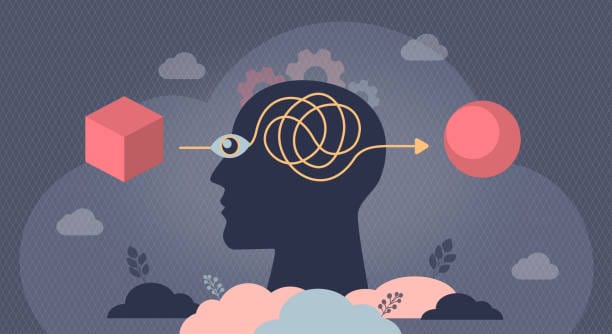You may not remember the exact words. But you remember the ache.
The betrayal. The dismissal. The abandonment. The humiliation. That thing someone did—or didn’t do. The way they left. The way they stayed too long. The apology that never came. The lie you believed. The truth they withheld.
We talk about forgiveness like it’s a moral virtue, something noble and abstract. But forgiveness isn’t an idea.
It’s a wound.
More specifically, it’s what we do with the wound. Whether we carry it, nurse it, hide it, weaponize it—or, eventually, release it.
And releasing it is not easy.
Because forgiveness is not forgetting. It’s not excusing. It’s not a passive act. It’s not something weak or submissive or cheap.
Forgiveness, real forgiveness, is a deeply emotional and profoundly biological process. One that rewires your nervous system, reshapes your brain, and releases you from the grip of the past.
And though it can’t change what happened—it can change everything that comes next.
Why We Hold On to Hurt
Before we can understand forgiveness, we need to understand why we don’t forgive.
It turns out, the refusal to forgive is not just emotional—it’s primal. When someone harms us, our brain interprets that as a threat. It activates the amygdala, the brain’s fear center, launching us into fight-or-flight. Adrenaline floods the body. Our heart rate spikes. Cortisol levels rise. Our memory sharpens around the trauma.
This is evolutionary. It keeps us safe.
If someone hurt you, your brain wants to remember that hurt vividly—so you don’t walk into that trap again. So you stay alert. So you protect yourself.
But here’s the problem: emotional pain doesn’t fade like physical pain. It sticks. Especially when the wound is moral or relational—when the betrayal cuts not just into your body, but into your sense of trust, identity, and safety.
You don’t just remember what they did. You remember how it made you feel—worthless, invisible, unloved.
And in remembering, you relive.
This is why unforgiveness isn’t a passive state. It’s an active loop. A physiological pattern. And breaking that pattern isn’t a simple decision. It’s a transformation.
The Biology of Bitterness
Bitterness may feel like armor. But it’s more like acid.
Studies show that chronic unforgiveness activates the same stress response as the original trauma. When you ruminate on a past injustice, your brain and body don’t know it’s a memory. They respond like it’s happening now.
You relive the betrayal. The shame. The rage. You cycle through adrenaline and cortisol, again and again. Over time, this can damage your cardiovascular system, weaken your immune response, impair your sleep, and increase your risk for depression and anxiety.
In one 2001 study, researchers asked participants to recall real experiences of being deeply hurt. Some were instructed to ruminate on the offense; others to try forgiving the offender. The unforgiving group showed higher heart rate, blood pressure, and muscle tension. Their entire bodies were primed for danger. The forgiving group, even when merely imagining forgiveness, showed measurable decreases in stress.
This isn’t just emotional relief. It’s physical healing.
But what about justice?
Forgiveness Is Not Injustice
Here’s the thing: forgiving someone doesn’t mean you’re saying what they did was okay.
It doesn’t mean forgetting. It doesn’t mean reconciling. It doesn’t even mean you talk to them again.
Forgiveness is not for them.
It’s for you.
In psychological terms, forgiveness is the conscious, deliberate decision to release resentment or vengeance toward someone who has harmed you—regardless of whether they deserve it.
Let’s pause there.
“Regardless of whether they deserve it.”
That’s where most people get stuck. Because it feels wrong to forgive someone who hasn’t earned it.
But what forgiveness offers you is something no apology ever can: freedom.
Freedom from the pain you didn’t choose. Freedom from the emotional debt you’ve been forced to carry. Freedom from becoming the very thing you hate.
Justice and forgiveness are not enemies. In fact, the greatest movements for justice in history—Gandhi, Mandela, King—have been led by people who believed in the power of both.
You can forgive someone and hold them accountable.
You can release resentment and still demand change.
Forgiveness is not the erasure of justice.
It is what makes justice possible without recreating harm.
The Neuroscience of Letting Go
So what actually happens in the brain when you forgive?
Let’s go inside.
When you begin to practice forgiveness, especially through therapy, meditation, or writing exercises, certain regions of the brain light up—most notably the prefrontal cortex, associated with empathy, decision-making, and perspective-taking.
At the same time, activity in the amygdala begins to decrease. This means your emotional response to the memory becomes less intense. Your body stops going into fight-or-flight. You start to process the hurt cognitively rather than just reactively.
Brain scans have shown that people who cultivate forgiveness over time have more neural activity in regions tied to emotional regulation, compassion, and morality. They also show fewer symptoms of depression and PTSD.
Forgiveness is literally reprogramming your brain.
And the effects ripple outward—to your relationships, your health, your entire quality of life.
But make no mistake: it is still work.
The Emotional Steps of Forgiveness
Forgiveness is not a single moment. It’s a journey. And like all journeys, it has stages:
1. Awareness.
You acknowledge the hurt. You name the pain. You stop pretending it didn’t matter. This is the beginning of healing.
2. Grief.
You feel the weight of what was lost. The trust. The future you imagined. The part of yourself that broke. This is necessary. Don’t skip it.
3. Anger.
Rage is part of forgiveness. Not its enemy. You’re allowed to be furious. You’re allowed to scream, to write the unsent letter, to feel the injustice in your bones.
4. Empathy.
This is not about excusing. It’s about understanding. When you can see the humanity—and the brokenness—in the person who hurt you, you take back your power.
5. Release.
You let go—not because they deserve it, but because you do. You let go of the hope that the past will be different. You let go of needing them to fix it.
6. Integration.
Forgiveness becomes part of your story. Not a chapter you hide—but one that shows your resilience. Your healing. Your courage to choose peace.
These stages don’t always happen in order. And they don’t happen just once. Forgiveness is a spiral. A return. A softening over time.
Be gentle with yourself. Some wounds need to be forgiven a thousand times.
Forgiving the Unforgivable
“But what if the harm was too great?”
It’s a fair question.
Some harms are beyond apology. Childhood abuse. Sexual violence. Systemic oppression. Generational trauma. These wounds cut deeper than the personal. They fracture identity. They destroy safety. They take years—even lifetimes—to heal.
In these cases, forgiveness must be reframed.
You are not forgiving the act. You are forgiving the power it holds over you.
You are saying: “I will not let this pain define my future. I will not let your actions control my emotions, my health, my relationships.”
Forgiveness becomes an act of rebellion.
It becomes a way of saying: “You took something from me. But you don’t get everything.”
In this way, forgiveness becomes not weakness—but the most radical strength.
Self-Forgiveness: The Hardest Kind
There’s one form of forgiveness even harder than forgiving others.
Forgiving yourself.
The shame you carry. The mistakes you made. The people you hurt. The version of yourself you can’t bear to remember. The words you can’t take back. The chances you didn’t take. The self you abandoned to please others.
You live with that memory every day. And sometimes, it screams louder than any outside critic.
But here’s what the science says: self-forgiveness isn’t selfish. It’s necessary.
People who forgive themselves show lower rates of depression, anxiety, and substance abuse. They have better immune function. They take more responsibility—not less—for their actions.
Why?
Because when you stop punishing yourself, you start growing.
Self-forgiveness begins not with excuses—but with accountability. You own what you did. You make amends if possible. Then you offer yourself the same compassion you would give a friend.
You are not the worst thing you’ve ever done.
You are the person who survived it—and chose to be better.
Forgiveness in Relationships
In love, forgiveness is not optional.
Whether in marriage, family, or friendship, the people we are closest to will hurt us. Not because they are cruel. But because they are human.
No relationship survives without forgiveness.
This doesn’t mean tolerating abuse or chronic harm. But it does mean learning how to navigate conflict, disappointment, and betrayal with honesty and repair.
In research on long-term couples, those who were happiest weren’t the ones with the least conflict. They were the ones who learned to forgive each other—regularly, deeply, sincerely.
Forgiveness doesn’t erase wounds. But it binds them.
It creates trust—not because you pretend nothing went wrong, but because you believe the relationship is worth healing.
Spiritual Dimensions of Forgiveness
Forgiveness is not just psychological. For many, it is sacred.
Every major spiritual tradition teaches forgiveness—not as a duty, but as a path to liberation.
In Christianity, Jesus forgives his executioners. In Buddhism, forgiveness is part of releasing attachment and suffering. In Islam, Allah is often called “The Most Forgiving.” In Judaism, forgiveness is central to Yom Kippur, the Day of Atonement.
Why?
Because forgiveness opens the soul.
It breaks the chains of hatred. It releases you from karma. It allows grace to flow where vengeance once lived.
Even if you are not religious, there is something transcendent about forgiveness. Something that lifts us above our animal instincts and into something more divine.
When Forgiveness Doesn’t Come
Let’s be honest. Sometimes, no matter how hard you try, forgiveness doesn’t come.
You want to let go—but you can’t.
That’s okay.
Forgiveness isn’t a race. And it’s not a requirement for healing. What matters is your direction, not your speed.
Sometimes, forgiveness is the destination—but sometimes, it’s the journey. Or maybe it’s not the path for you at all.
You get to decide what healing looks like.
No one else.
Final Thoughts: A Liberation That Starts Within
The emotional science of forgiveness is clear: it heals your heart, your mind, your body. It frees your brain from loops of stress and hate. It restores your nervous system. It opens the possibility for love again.
But most importantly, it returns your life to you.
You will never change the past.
But you can change your relationship to it.
That is the power of forgiveness.
And that power, fragile and fierce, begins in you.






